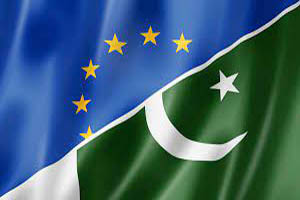
EU Commission removes Pakistan from ‘list’ High Risk
The office of Economic Minister, Embassy of Pakistan, Brussels, Belgium have confirmed that European Commission has removed Pakistan from the List of High Risk Third Countries having strategic deficiencies in their AML/CFT regime. The official said that Pakistani businesses and individuals would no longer be subjected to Enhanced Customer Due Diligence by European legal and economic operators.
|
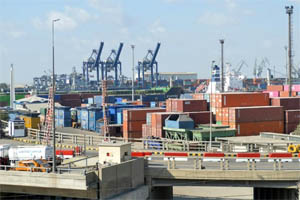
Govt allows full range of imports
Pakistan has reopened imports of the full range of goods by removing restrictions imposed on the import of 826 items from time to time between 2017 and 2022. The major items freed from import restrictions include raw material for cement and steel, vehicle parts, confectioneries, chocolate, mineral water, cigarette paper, electrical and electronic goods and some machinery and parts. According to a circular of the State Bank of Pakistan (SBP), the bank has removed the condition of depositing up to 100% payment in advance for the import of hundreds of items. The central bank said in a circular “it has been decided to withdraw existing cash margin requirement/ CMR (advance payment) on import of items with effect from March 31, 2023.” A couple of months ago, the SBP instructed commercial banks to prioritise import financing for different goods including energy (petroleum products and LNG), pharmaceuticals and medical equipment, raw material and machinery for exporters and vehicles (including passenger cars). Pakistan lifted the restrictions on imports after its current account deficit narrowed to a two-year low at $78 million in February 2023 in the wake of import control measures.
|
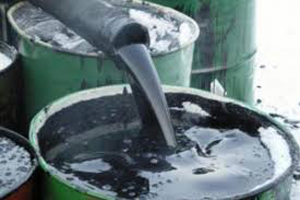
Japanese company 'offers Pakistan cheap Russian oil, Nigerian LNG'
A Japan's leading trading company has reportedly offered Pakistan to sell Russian oil and Nigerian Liquefied Natural Gas (LNG) to Pakistan at 35 per cent less than the global market's prices. The Japanese company partners with an Irish company for the purpose. It is learnt that the representative of the Japanese company made this offer to the ambassador of Pakistan in Tokyo. The meeting was arranged by Pak-Japan Business Council President, who is a leading Pakistani businessman in Japan. The company's representative informed the Pakistani envoy about the details of oil and LNG supplies. He said the company and its partner company in Ireland have a license to sell Russian oil and Nigerian LNG and that if the Pakistani government is interested in buying oil and gas, the Japanese company will be able to sell it at a price lower than global rates.
|
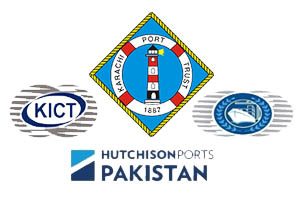
KPT sends $2m recovery notice to Hutchison
The Karachi Port Trust (KPT) has served a $2 million recovery notice to Hutchison Ports Pakistan (HPP) — the operator of the deep-water Karachi International Container Terminal (KICT) since 1998 – for not fulfilling the terms of the agreement. According to the sources, HPP was to pay a $21.6m royalty to KPT under the agreement but Hutchison paid only $19.6m related to rental charges and royalties for land leased to the company in 2005. Non-payment by the KICT has allegedly caused a significant financial loss to the national exchequer and the National Accountability Bureau (NAB) is investigating the allotment of land to KICT. The initial reports suggest that malpractices by both the KPT and the KICT have caused a staggering financial dent of Rs22 billion to the national exchequer.
|
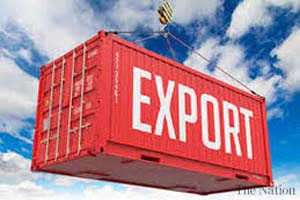
Exports to nine regional states dip 18pc
Pakistan’s exports to nine regional countries shrank 18.28 per cent in the first eight months of FY23 mainly driven by a drop in shipments to China, data compiled by the State Bank of Pakistan (SBP) showed. The decline is not confined to exports but imports especially from China also saw a deep decline during the current fiscal year. As part of government austerity measures, imported containers are awaiting clearance as the opening of letters of credit for consumers’ goods is the least priority of the government. The country’s exports to Afghanistan, China, Bangladesh, Sri Lanka, India, Iran, Nepal, Bhutan and the Maldives dipped to $2.414 billion — just 12.92pc of Pakistan’s total exports of $18.bn in July-February FY23. China tops the list of Pakistan’s regional exports leaving other populous countries India and Bangladesh behind. But Pakistan’s exports to China posted negative growth in the first 8MFY23 on a year-on-year basis. The bulk of the regional exports share, which accounts for 55.26pc, is with China while the remaining is for eight countries.
|
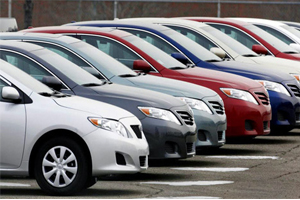
Auto financing falls for eighth month in row
The outstanding auto financing continued to decline for the eighth consecutive month in February dipping almost 9 per cent to Rs326 billion from Rs357bn in the same month last year, data released by the State Bank of Pakistan (SBP) showed. Car financing would remain depressed in coming months due to a massive rise in monthly instalments on account of soaring interest rates and surging vehicle prices and delay in delivery due to plant shutdowns. Car assemblers have continued to keep production activities suspended due to parts shortages after the central bank’s decision of putting curbs on imported parts and accessories in a bid to slow down the demand for vehicles. The interest rate stands at 20pc which was 7pc in March 2020. Banks are offering loans at four to 5pc higher than the Karachi Interbank Offered Rate (Kibor), making it difficult for the buyers to afford higher monthly instalments amid unprecedented inflation. Meanwhile, Hinopak Motors Ltd has suspended production operations from March 24 to April 4 due to a persistent shortage of parts and accessories amid import restrictions.
|

Coal brightens the prospects of Thar desert 2 power plants inaugurated by PM
Prime Minister Shehbaz Sharif inaugurated two coal-fired power plants in Tharparkar with a capacity of 1,650 megawatt of electricity generation, saying the projects would eventually transform the desert into an economic hub. The projects including the 1,320 megawatt Shanghai Electric power plant and 330 MW Thal Nova power plant will annually generate 11.24 billion units of low-cost electricity. Through the direct investment of $3.53 billion into these projects, the production of coal-based electricity in Thar will increase up to 3,300 MW. Addressing the event at the Islamkot area of Thar, the prime minister said it was a moment of celebration for the entire country that the desert of Tharparkar was getting a source of basic facilities for life. He dismissed the criticism by a section of people against Thar’s coal, terming it a blessing with immense potential for power resources that needed to be tapped. He expressed confidence that the journey of progress would spread across the country and would strengthen the national economy. He expressed gratitude to the Government of China for extending support to Pakistan in carrying out development projects under the CPEC. He vowed that the coalition government would put in all efforts to materialize the CPEC projects, with the agriculture sector as its next phase.
|
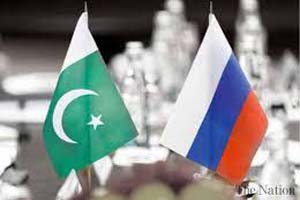
Pakistan-Russia crude talks show progress but no deal in March
A two-day Pakistan-Russia technical talks on the import of crude oil ended, without signing of a formal commerce deal as some issues still need to be resolved. A formal commercial deal is expected to be inked somewhere in April, 2023, instead of the current month on issues with regards to making SPV (special purpose vehicle), and a mode of payment that needs further deliberations, a senior official of Energy ministry told. The technical team of the Operational Services Center (PSC), a state-owned company of the Russian government came to Karachi on March 20, 2023, and held two days of talks with officials of Pakistan State Oil (PSO) which is a nominated state-owned company on behalf of Pakistan for talks and signing of the Russian crude oil import deal. “This means the test cargo may now reach Pakistan in May, not in April as the signing of the formal GtG [government to government] agreement is most likely to be inked in April. The ship carrying Russian crude will take at least 30 days to reach Pakistan’s port,” the official said. “Our refineries had shared their specifications for which the Russian side needs to provide the required blended crude at par with Sokol but it will have some additional cost. Moscow wants the commercial deal first then it will provide the required blended cargo.” The test cargo of URAL will help Pakistan’s authorities assess the landed price if compared with the cost of crude oil from ADNOC and Saudi Aramco.
|
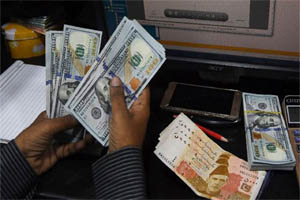
Current account deficit declines 68pc
Current account deficit declined by 68 per cent to $3.8 billion during the first eight months of the current fiscal year (FY23) from $12bn during the same period last year. February showed a healthy sign as the CAD fell to just $74 million against $519m last year, the lowest monthly deficit recorded since February 2021. The deficit declined by 86 per cent on a year-on-year (YoY) basis. The decline in the CAD was due to a fall in imports while no higher exports or inflows were noted. Though the balance of payment reflected a healthy sign for improvement in the external front of the country’s economy, the government is unable to meet even this decreasing CAD due to extremely poor foreign exchange reserves. In order to bring the fiscal deficit under control, the government has slashed the development budget, thus slowing down the economic growth and creating joblessness in the country. Since the government is unable to increase exports, the balance of payments remained under threat as imports stood double than exports during the July-Feb period.
|
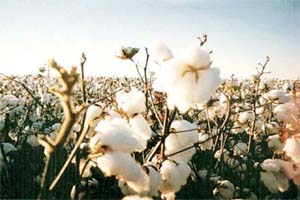
Cotton: huge output shortfall projected
Cotton production will be merely 4.78 million bales (arrivals till 3rd March 2023) against the target of 09 (nine) million bales due to damage by the floods and decline in area owing to slim profit margin in cotton. This was revealed in a summary of Ministry of National Food Security and Research which was presented to the Economic Coordination Committee (ECC) of the Cabinet seeking to fix Rs8,500 per 40kg cotton intervention price (CIP) for the next crop to increase the cotton production by 10 to 15 per cent. The federal cabinet has ratified the ECC decision of Rs8,500 per 40kg CIP for the next crop. It added that farmers in some cotton production have already switched other crops such as rice, maize, and sugarcane. The Ministry further stated that to meet the demand of the textile industry, Pakistan has the potential to increase cotton production to 15 million bales in a short period of time if the old cotton area is re-gained; farmers are supported with appropriate technology and they receive a fair and stable price. Lower cotton production has hampered the textile industry’s growth and increased the import bill of raw cotton, edible oil and livestock meal.
|

Sunwalk Group intends to invest $2b in telecom sector
Minister for Information Technology and Telecommunication Syed Amin Ul Haque said that Sunwalk Group intends to invest USD 2 billion in telecom sector for the deployment of an optical fiber network, encompassing an area of 100,000km. The willingness to make investments was showed by a high-level delegation of Sunwalk Group led by Chairman Mr Hou which called on Federal Minister for IT & Telecom Syed Amin Ul Haque, said a news release issued here. The meeting also discussed Investment in Telecom Infrastructure, Optical Fiber Cable (OFC) and Right of Way (RoW). Sunwalk (Pvt) Ltd is a telecom and technology based multinational private Chinese enterprise that has developed multiple telecoms, and communication infrastructure projects in China and has acquired a TIP License in Pakistan.
|
|

© 2023 Alpine Marine Services Private Limited
all rights reserved
|
|
|